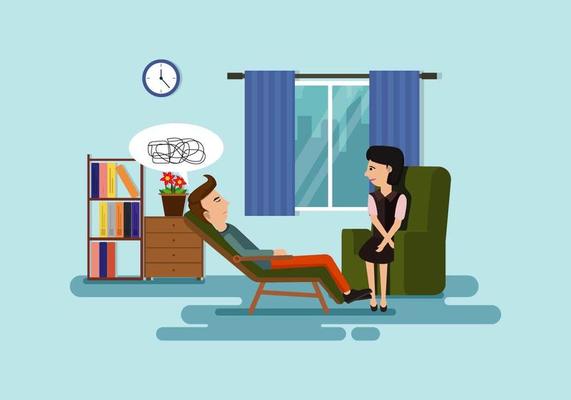Psych Treatment: A Comprehensive Guide to End Results and strategies

Cognitive-Behavioral Treatment
Cognitive-Behavioral Treatment (CBT) is a commonly utilized psychotherapeutic approach that focuses on recognizing and changing dysfunctional reasoning and behavior patterns. Established in the 1960s by Aaron T. Beck, CBT incorporates behavioral and cognitive concepts to attend to numerous psychological health issues, consisting of depression, stress and anxiety, and stress-related conditions. The premise of CBT is that maladaptive ideas add to psychological distress and maladaptive actions. By restructuring these thoughts, people can attain substantial improvements in their emotional wellness and everyday functioning.
CBT is defined by its organized, goal-oriented nature. Therapy generally includes a collective procedure in between the therapist and customer, where particular problems are recognized, and useful techniques are developed to resolve them. Methods such as cognitive restructuring, direct exposure treatment, and skill-building workouts are typically utilized. Cognitive restructuring involves tough and modifying negative thought patterns, while direct exposure therapy aims to decrease anxiety and anxiousness via steady exposure to been afraid objects or scenarios.
Evidence-based study supports the efficacy of CBT for a wide variety of mental conditions - Best Psychologist in Delhi. Its emphasis on skill procurement and self-help methods empowers clients to proceed progression independently after therapy wraps up. The flexibility and efficiency of CBT have made it a foundation in contemporary psychotherapeutic practice
Psychodynamic Techniques
Rooted in the early concepts of Sigmund Freud, psychodynamic techniques concentrate on discovering the subconscious mind and its impact on actions and emotions. These approaches aim to discover covert thoughts and sensations that may be driving maladaptive actions and emotional distress. Central to this approach is the idea of internal dispute, often stemming from unsettled previous experiences, especially those from childhood years.
Therapists utilizing psychodynamic strategies utilize a number of key methods, consisting of free organization, where people are urged to talk easily to expose unconscious material, and dream evaluation, which translates the hidden content of desires. Furthermore, the exploration of transfer and countertransference characteristics within the therapeutic relationship is vital. These communications can provide understandings into the client's inner globe and relational patterns.
Psychodynamic therapy is typically longer-term contrasted to various other methods, offering a deep and extensive understanding of the individual's psyche. Study shows that it can be specifically efficient for intricate psychological health and wellness issues, such as character problems and chronic clinical depression. By promoting self-awareness and emotional insight, psychodynamic treatment looks for to bring unconscious product to consciousness, allowing people to achieve long lasting and purposeful change in their lives.
Humanistic Methods
Building on the foundations laid by psychodynamic strategies, humanistic strategies offer a distinctive perspective focused on private potential and self-actualization. Stemming in the mid-20th century, these methods focus on the integral goodness and development possibility of individuals, emphasizing a holistic view of human experience. Trick numbers such as you can try here Carl Rogers and Abraham Maslow have significantly affected this restorative method, which incorporates techniques like client-centered treatment and Gestalt treatment.
Client-centered therapy, created by Rogers, plays a crucial duty in humanistic techniques. The therapist's role is more of a facilitator than an authority, encouraging clients to harness their internal sources for recovery.
Gestalt treatment, an additional important humanistic strategy, highlights existing moment understanding and the assimilation of body and mind. By concentrating on the "below and now," clients obtain better understanding right into their existing emotions and behaviors. Strategies such as role-playing and led visualization are usually used to aid clients get a much deeper understanding of themselves, ultimately leading to boosted self-awareness and fulfillment.
Integrative Treatments
Integrative treatments represent a synthesis of numerous healing techniques customized to meet the distinct demands of each client. This method recognizes the complexity of human psychology and the multifaceted nature of psychological health and wellness concerns. By integrating components from various schools of psychiatric therapy-- such as cognitive-behavioral therapy (CBT), psychodynamic treatment, and humanistic techniques-- integrative treatments use a more versatile and holistic treatment standard.
Practitioners of integrative treatment examine each find more customer's certain needs, signs and symptoms, and individual history to design a tailored treatment plan. This personalized strategy improves the possibility for restorative success by attending to the source of psychological distress and promoting general well-being. Techniques may consist of mindfulness workouts, cognitive restructuring, and emotional handling, each picked continue reading this to target different aspects of the client's concerns.
Additionally, integrative therapies highlight the healing relationship, seeing the client-therapist bond as a crucial element of effective treatment. This partnership promotes a supportive atmosphere where customers feel safe to check out and address their issues. The adaptability of integrative treatments makes them appropriate for a wide array of problems, consisting of anxiety, depression, trauma, and social troubles, therefore boosting their applicability and performance in diverse professional settings.
Measuring Treatment End Results
Assessing the performance of psychiatric therapy is vital for both clinicians and customers to ensure that the therapy is generating the desired outcomes. To accomplish this, different methods and tools are employed to gauge treatment end results methodically. Standard assessment instruments, such as the Beck Anxiety Stock (BDI) and the Generalized Anxiety Problem 7 (GAD-7), provide measurable data on symptom severity and changes with time.
In addition to standardized tools, qualitative approaches like client self-reports and clinical meetings supply valuable insights right into the personal experiences and regarded progression of clients. Frequently arranged assessments, generally at the beginning, navel, and end of treatment, aid in tracking the trajectory of enhancement or determining areas requiring adjustment.
Result dimension is not limited to sign decrease; it also includes useful improvements in day-to-day live, such as better social relationships, boosted job efficiency, and improved general health. Modern improvements in electronic health and wellness have presented mobile applications and on-line systems that facilitate real-time tracking and feedback, further refining the evaluation procedure.
Eventually, a comprehensive strategy to gauging treatment outcomes ensures that healing treatments are efficient, efficient, and customized to meet the private needs of customers, thereby enhancing the overall restorative experience.
Final Thought
Psychotherapy uses a multifaceted array of methods targeted at resolving specific mental health problems and enhancing total wellness. Cognitive-Behavioral Therapy and psychodynamic approaches target unconscious influences and dysfunctional thoughts, specifically. Humanistic methods concentrate on individual growth and self-actualization, while integrative treatments incorporate multiple techniques for tailored treatment strategies. Assessing treatment end results with qualitative approaches and standardized evaluations ensures a thorough understanding of performance, ultimately leading customers towards sustaining mental health and wellness renovations.
From the structured technique of Cognitive-Behavioral Treatment (CBT) to the deep expedition of the subconscious in psychodynamic therapy, each technique brings one-of-a-kind advantages. Its emphasis on skill purchase and self-help techniques empowers customers to proceed development separately after therapy ends (Best Psychologist in Delhi). Key numbers such as Carl Rogers and Abraham Maslow have considerably influenced this healing technique, which encompasses methods like client-centered therapy and Gestalt treatment
